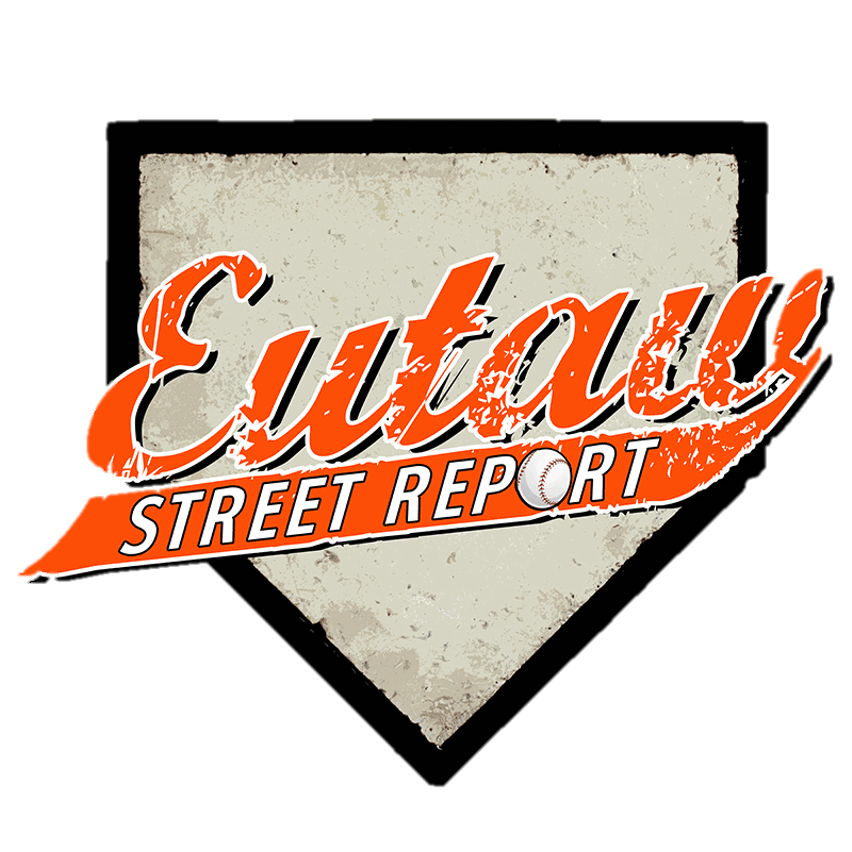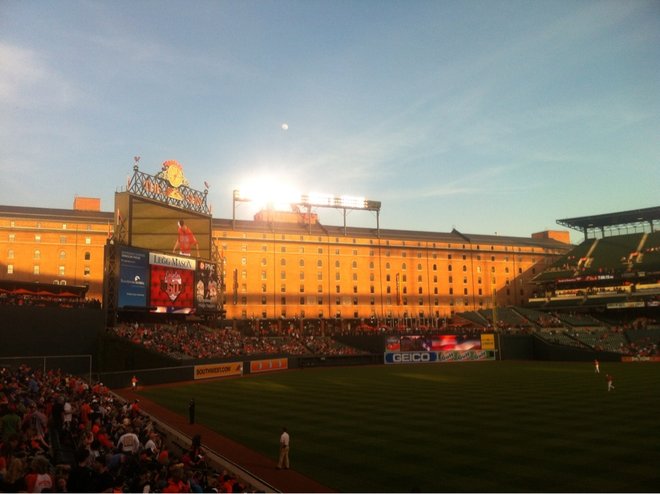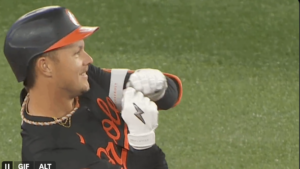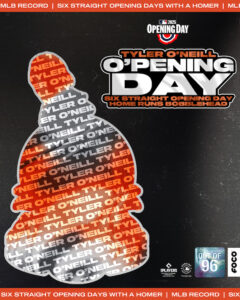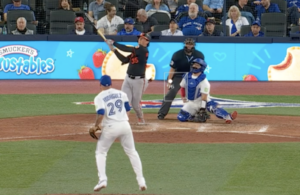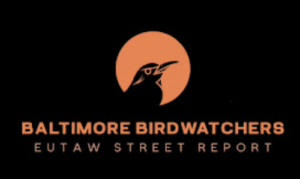When Major League Baseball announced last week it was moving July’s All-Star Game out of Atlanta (more accurately Cobb County, Georgia), I could hear the sound of Orioles fans everywhere licking their lips in anticipation. It was kind of gross. Folks were excited about the prospect of the Midsummer Classic making its long-awaited return to Oriole Park at Camden Yards for the first time since 1993. I just kind of shrugged, because I knew it wasn’t going to happen.
I was a bright-eyed four-year-old kid that hot summer night in Downtown Baltimore when Cito Gaston became public enemy #1 and one my favorite players, Kirby Puckett, won the game’s MVP award. Despite my early age, I actually have fond memories of that night. People are surprised when I tell them that, but it’s true. I remember not even getting the concept of the two leagues competing against one another. I was more interested in which players I liked and rooting for them individually than anything. It was truly one of my earliest and most important baseball memories.
But when MLB said it was taking the game from the Braves in light of Georgia’s new voting law, I didn’t get my hopes up that a home run derby would soon be peppering moon shots onto Eutaw Street in the near future. In fact, days later, MLB announced the game would be headed to Denver. Colorado’s voting laws, despite what some might try to have you believe, are far more inclusive and welcoming to democracy. Coors Field last hosted the game in 1998, three years after it opened and five years after Oriole Park last had the game. Anyone who has been paying attention, however, knows that it wasn’t going to be coming back to Charm City this summer. It won’t be next season when the game goes out to Dodger Stadium (which was scheduled to host it last year before the pandemic had its say). It likely won’t be 2023, 2024 or 2025, and it definitely won’t be 2026 which is already slated for Philadelphia to celebrate the 250th anniversary of the signing of the Declaration of Independence. Yes, that’s a real thing. The Phillies, by the way, last hosted the game in 1996 at Veterans Stadium, which you’ll note is also three years after the game was in Baltimore.
I’m not going to chase you away with another debate about politics or cancel culture or being “woke” by moving the game out of Atlanta. But there is another difficult (albeit less important than democracy) discussion that needs to be had here when it comes to the Orioles, and that’s the Mid-Atlantic Sports Network. Yes, MASN is the exact (and perhaps only) reason the Orioles aren’t hosting an All-Star Game anytime soon.
You have to go back a full 16 years to get the full scope of the MASN picture, and even then, it may be at least another 16 until it’s all resolved. Anyone who has followed the controversy between the Orioles, Nationals, MLB and the network that airs games for both teams would know it’s complex and without a good answer. That’s why it’s been dragged out for so long. It was only heightened earlier this year with the firing of multiple prominent broadcasters by both the O’s and Nats.
MLB made a deal with the devil back in 2004. That’s merely a turn of phrase and not a dig at the Angelos family, I swear. Truthfully, baseball’s deal with the Orioles is almost too good to be true for the team. The Nationals have every right to be bothered by not getting their fair share while the Orioles have every right to be bothered by attempts to cut into their earnings.
I’m going to push aside, for the moment, the many frustrating things about MASN that stick with fans I’ve talked to. From certain broadcasters who will go unnamed, to the fact that they are just now in the year 2021 getting around to streaming games (and not even for cord cutters), to the lack of programming outside of baseball games, to the lack of coverage during spring training – there are plenty of things to complain about when it comes to MASN. Instead, there are two things that are extremely frustrating as an Orioles fan to watch play out in relation to the MASN controversy.
The first is the lack of transparency when it comes to how the network is being operated and what kind of windfall it can be for the club. Everyone knows that while having fans in stadiums is an important part of a baseball’s revenue, an even more important part is the deal it has with its own regional sports network. The fact that the Orioles share a network with their neighbors down the road complicates all of this. But they knew that back in 2004, hence the lopsided deal that MLB made. More and more teams are gaining some sort of ownership with the RSN that broadcasts its games, but the relationship between the Orioles and MASN is a unique one that doesn’t have a ton of transparency to it. That lack of transparency leads to a distrust as to how much is actually being invested into making the on-field product any better. MASN of course deserves to be a money-making operation in the way that any business is a money-making operation. The baseball team deserves that right as well. Professional sports are a business, we all know this. But a fanbase starved for competitive baseball also deserves to know that an effort is being made financially to improve the part that they get to watch.
The second part of this that doesn’t really have an answer is how this will impact the team going forward on the field. This is the part that fans will really care about, because they want to see winning baseball. They want to see more of what they saw between 2012-2016 and know that it’s sustainable. The Orioles have obviously made some strides by building up their farm system and spending money in Latin America, but the MASN of it all still hangs out there like a dark cloud that may or may not bring a storm. No one can tell you definitively that the O’s will have the ability or desire to spend some money on free agents when the time comes because no one can tell you what impact all of the litigation surrounding MASN will place on the club. Their financial dealings and front office behavior have triggered major red flags in the last year. Much of that is due to the financial impact of the pandemic, but when you look beyond that cloud, the MASN cloud is still hanging around too.
As the Orioles embark on another season where they aren’t expected to win a ton of games, hosting an All-Star Game is far from my mind. That feels like the pot of gold at the end of a rainbow that will only show itself after the storm that may or may not be still brewing. I’m not trying to be doom and gloom in early April, when hope is supposed to spring eternal. But the prospect of an All-Star Game’s movement just reminded me of how little we really know about what the future holds for a team that remains in such a holding pattern, waiting for something good to happen both on the field and off.
MLB has made it quite clear that they won’t be doing the Orioles any favors while this thing drags out. The Orioles are going to have to do all the favors for themselves. An All-Star Game is really the least of my concerns, however nice it would be to see it back in Baltimore. When it comes to the MASN controversy, fans deserve to know whether or not this is going to impact them on the field the way it has so drastically impacted them off of it.
